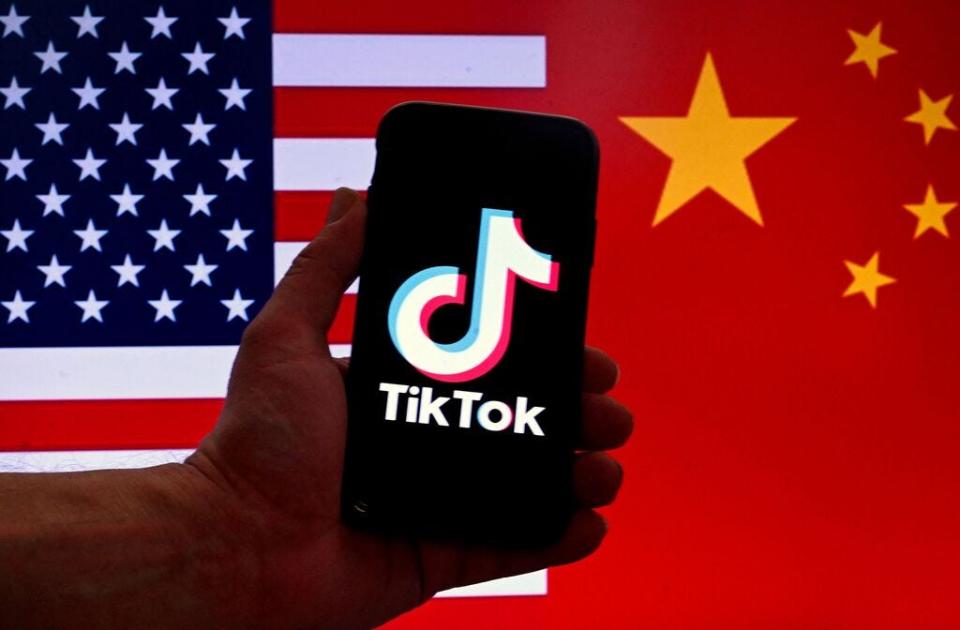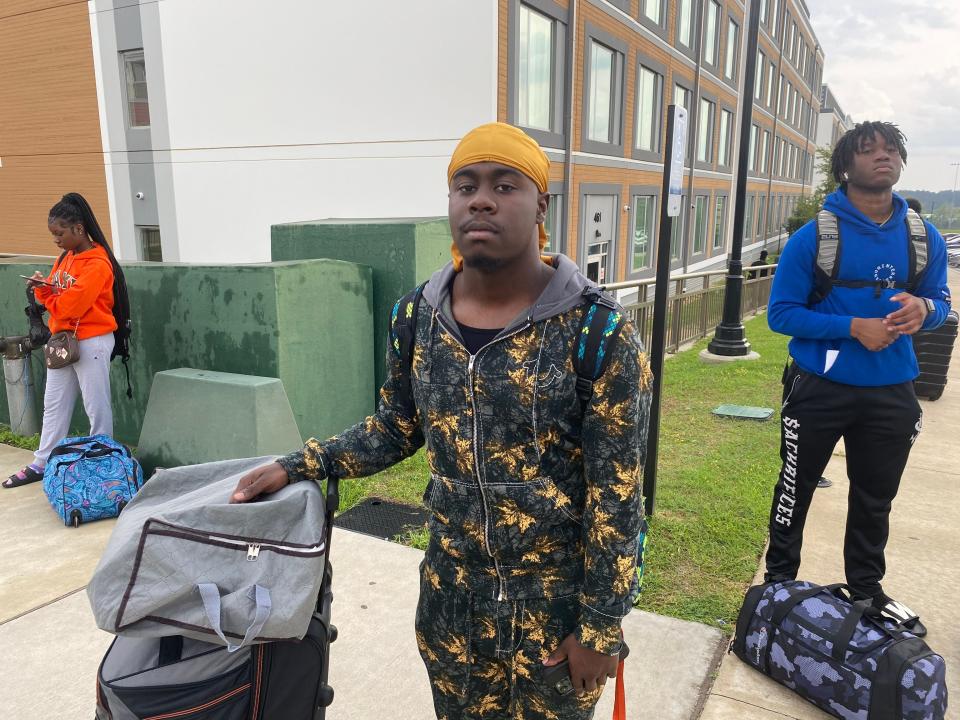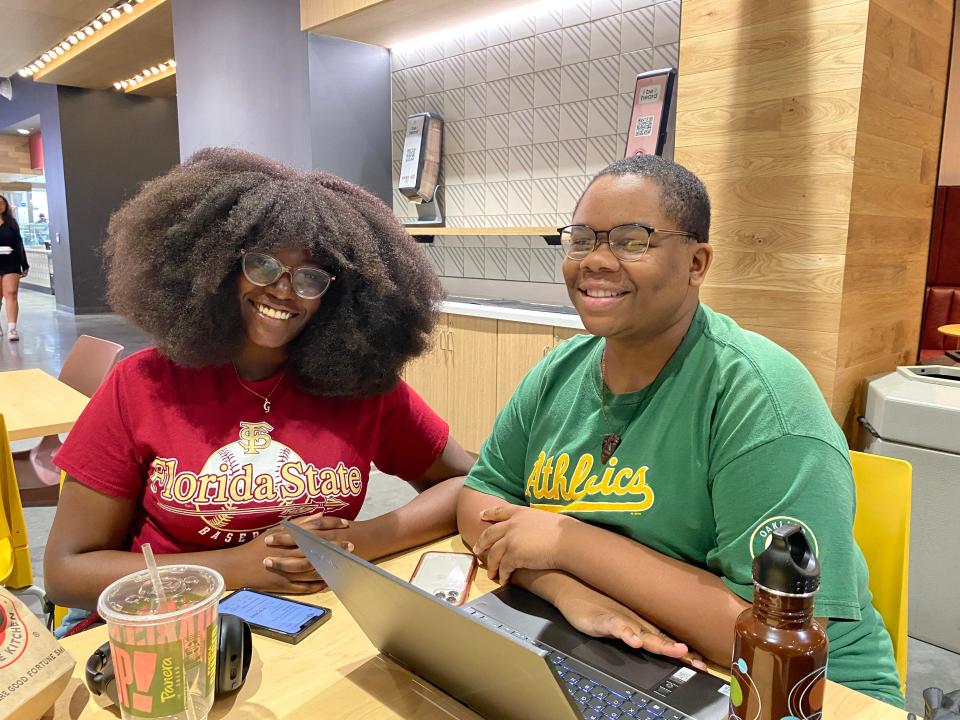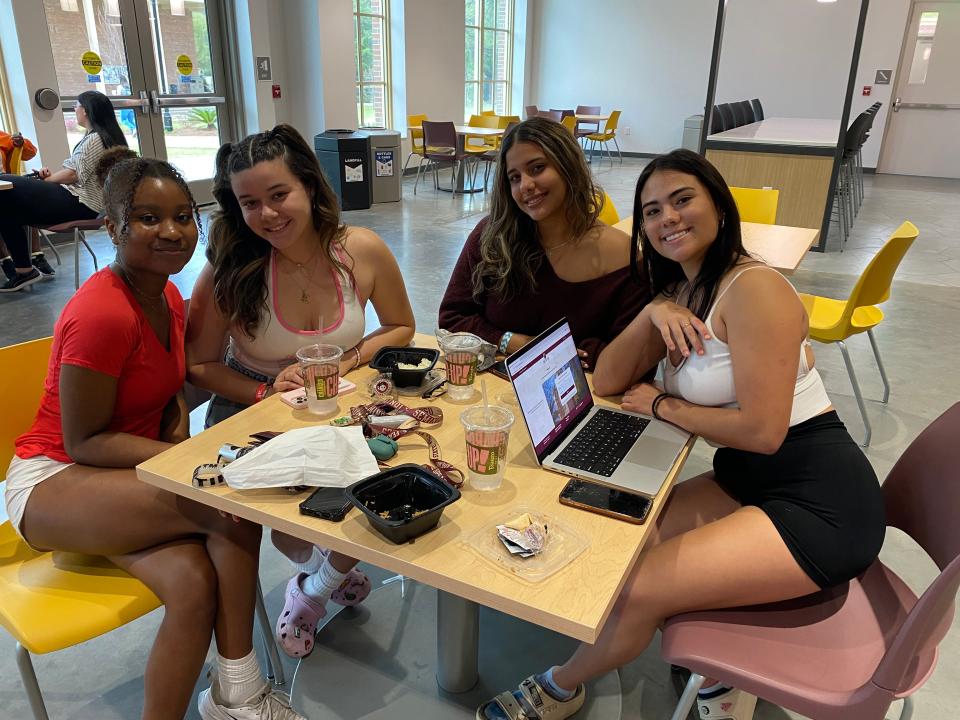FAMU bans TikTok from campus, FSU still undecided. Students react to how it affects them.
Florida A&M University has taken the controversial step of banning the widely used app known as TikTok from its campus, which blocks it from being accessible on FAMU devices and Wi-Fi.
While FAMU follows suit after many other colleges and universities across the nation have established the same rule, Florida State University and other universities in the state remain undecided on what action they will take.
On March 7, FAMU’s Office of Information Technology Services sent out an email to all students, faculty and staff of the university about the sudden change, which states that apps such as TikTok and Fizz cannot be installed or accessed on any equipment owned by the FAMU — including desktops, laptops, telephones and network devices.
This means that any current installs would need to be removed immediately, according to the message, and attempts of using the apps that are blocked will redirect users to a FAMU unauthorized access page while on campus.
“The application is deemed a threat to national security and privacy of users,” FAMU Chief Information Officer Robert Seniors said, referring to TikTok.

Higher education news:FSU student parents can get free childcare thanks to $5M grant
FSU and the Oscars:How one FSU alumna was part of Oscar award-winning 'Everything Everywhere All at Once'
More:FSU, TMH designate land, form community advisory group for new academic health center

TikTok is a short-form video sharing app that allows users to record and edit content such as dances and info sessions while using features such as filters, background music and special effects.
FAMU had a TikTok page that was created over three years ago by a previous social media manager to promote the university, but it was recently taken down in accordance with the apps that have been banned, according to a FAMU spokesperson.
Seniors says the university does not use the TikTok platform at all now.
While the app is no longer accessible on university-owned devices and while using FAMU Wi-Fi, it is still accessible on personal devices when using cellular data.
But with many of the apps’ users being teens and young adults, FAMU students like 19-year-old sophomore C.J. Mitchells are concerned about the ban.
“The main issue is that it’s limiting free speech and access to entertainment and information since TikTok is also a breeding ground for getting information out to people in a short amount of time,” said Mitchells, a Homestead, Florida native majoring in computer information systems.

Another FAMU sophomore — Brandon Haywood, who is majoring in psychology from Palm Beach County — says he uses the social media app Fizz every day, and that the ban would affect him, too.
Fizz is a platform that allows students to hold anonymous discussions, and it requires users to register with their college email since the app is exclusive to campus communities.
Haywood expressed his concerns about both the TikTok and Fizz apps being blocked by the university.
“The ban would be cutting off a way of communicating, especially with today’s world being so much more digital,” Haywood, 19, said.

The decision to ban the app comes after a recent viral TikTok moment involving a FAMU pharmacy professor, Jamal Brown, whose video gained popularity as he sung in class while teaching a diabetes lesson. The video currently has over 123,000 views.
Additionally, in 2020 FAMU was one of ten schools to receive a donation of $1 million each from TikTok's Future Health Heroes Fund to provide scholarships for Black, Hispanic and Indigenous students working toward careers in the medical and health care fields.
‘Going to have a big impact’
When it comes to TikTok — which is owned and operated by the company ByteDance headquartered in Beijing, China — the app has been a concern on the U.S. government level for the past couple of years because of the possibility of American user data being accessed and the security of digital infrastructure being in danger.
The White House announced on Feb. 27 that federal agencies have 30 days to remove TikTok from all government-issued devices following the "No TikTok on Government Devices Act" that was passed by the Senate in December.
This means that in a couple of weeks, devices related to the federal government will no longer provide access to the app under the orders of the Biden administration.
More than 30 states have already issued varying TikTok bans, and Gov. Ron DeSantis continues his own push for the app to be banned in the state of Florida as well.
DeSantis is proposing to ban access to the platform on any government-issued devices and the networks that serve them — including schools, colleges and universities — through a “digital bill of rights” for Floridians.
Related news:TikTok banned in Florida? No, but DeSantis seeks block on government devices, school networks
More:DeSantis targets TikTok while making another run against social media
Unlike FAMU, FSU has not sent out any guidance to its campus community regarding the app.
"We are aware of the issues and concerns surrounding TikTok and the matter is under consideration,” an FSU spokesperson told the Tallahassee Democrat.
FSU's colleges, departments and units have more than 200 social media accounts across platforms such as Instagram, Facebook, Twitter and LinkedIn, according to a university spokesperson.
Although FSU has an official TikTok page with over 7,800 followers and video content from August 2022, no new content has been posted on it since January.
But organizations associated with the university, such as FSU's Club DownUnder — a student-run program that hosts concerts and other events — currently has an active TikTok page, and so does FSU Football.
Je’Lon Delifus, a 20-year-old FSU junior majoring in psychology, uses TikTok multiple times a day.
When he checked his screen time while using the app, it showed that he spends an average of 2 hours a day on TikTok.
“TikTok is a great platform because it helps organizations spread messages about events, for example,” said Delifus, a Tallahassee native. “If it’s removed from campus, it’s going to have a big impact because the app is important for the culture of FSU.”

FSU student Gaelle Pierre — a first-year sociology major from Orlando, Florida — agrees with Delifus.
Pierre also uses TikTok every day. Although she understands the safety concerns that would relate to FSU's possible decision about the app, she does not think a ban would be necessary.
“I understand the concerns, but TikTok shows a more humane and genuine side of people and organizations,” Pierre, 21, said. “Taking that away might affect people’s willingness to get involved around campus.”
Other FSU news:How one FSU alumna was part of Oscar award-winning 'Everything Everywhere All at Once'
More:FSU student parents can get free childcare thanks to $5M grant
TikTok bans at other colleges, universities
Similar to FSU, universities across the state like the University of Florida have not taken definitive action regarding the app.
But in January, UF sent out a message to students “strongly discouraging the use of TikTok” by recommending that they remove the app from their devices as the university considers additional future steps.
FAMU’s decision follows over 50 colleges and universities across the nation that have blocked access to TikTok on their campuses.
The University System of Georgia has banned TikTok on devices owned by the system and its 26 universities and colleges. The Montana University System has taken the same action with its 16 schools.
More:Why are universities banning TikTok? Campuses are limiting use on school devices and Wi-Fi
Other institutions such as Texas A&M University, Arkansas State University and Auburn University in Alabama have also prohibited their students, faculty and staff from using TikTok while on university internet services.
FSU freshman Carolina Ortega, a Fort Lauderdale native who lives on the university's campus, says she wakes up and falls asleep to TikTok. She uses it after class, at the gym and throughout her whole day.

“TikTok is my news source, my how-to-do-things source and my outfit inspo when it comes to determining what to buy,” said Ortega, 19. “It’s like the new Google.”
“I don’t think banning it on campuses prevents students from still using the app,” she added.
Contact Tarah Jean attjean@tallahassee.com or follow her on twitter @tarahjean_.
Never miss a story: Subscribe to the Tallahassee Democrat using the link at the top of the page.
This article originally appeared on Tallahassee Democrat: FAMU bans TikTok from campus and students react to how it affects them

